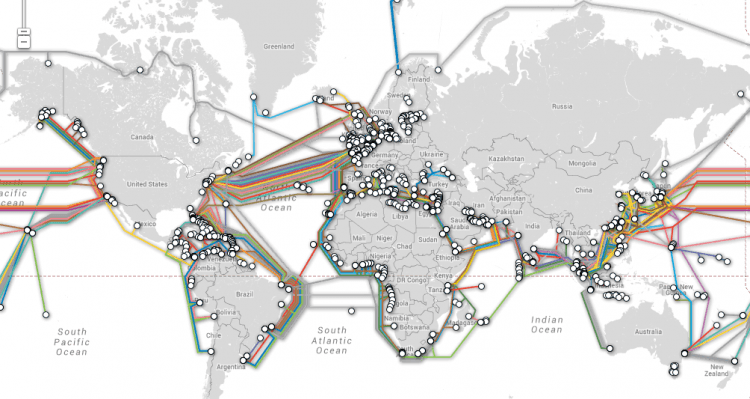The plot thickens as the NSA's data collection net widens. NSA leaks reveal that governments are tapping into "the Internet's backbone" to siphon off huge quantities of data. That is, government programs in the US and UK are able to gain access to tremendous amounts of data by accessing networks of undersea fiber optic cable, according to a report from The Atlantic.
British surveillance programs titled "Mastering the Internet" and "Global Telecoms Exploitation" (that sounds legitimate, right?), akin to the US's PRISM program, operate a subsidiary program called Tempora. Tempora soaks up huge amounts of data, upwards of 21 million gigabytes per day, and then retains the data for a month.
Tempora then shares this data with the NSA and British GCHQ, which reportedly commits 550 analysts to reviewing the contents. The data collected is cause for more concern to privacy advocates than the recent reports of collection of phone call metadata, because tapping into these cables allows governments to make complete copies of all the data, not just the metadata.
Edward Snowden, in his interview security analyst Jacob Appelbaum, said that the GCHQ is "worse than" the NSA because of their "full take" system, which collects all data indiscriminately, regardless of its content.
"If you had the choice, you should never send information over British lines or British servers," said Snowden.
The US has its own cable-tapping system, referred to by several names in the leaked NSA PowerPoint presentation: OAKSTAR, STORMBREW, BLARNEY and FAIRVIEW. PRISM interfaces with this data source similarly to its British counterpart.
In order to tap the undersea lines, the cables have to accessed directly. In 2005, the submarine USS Jimmy Carter was repurposed for the job, according to the Associated Press. Cables are accessed at "regeneration points," where they go through signal amplification and are no longer bundled and can be accessed individually.
Image Credit: The Atlantic
